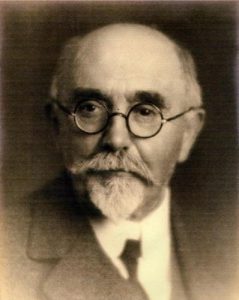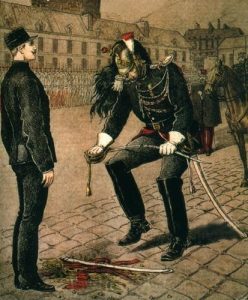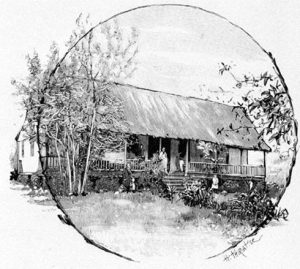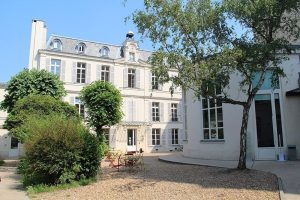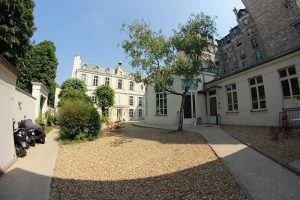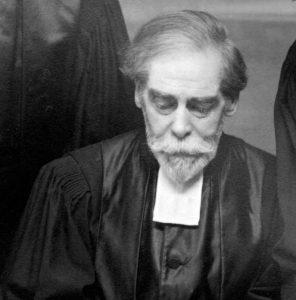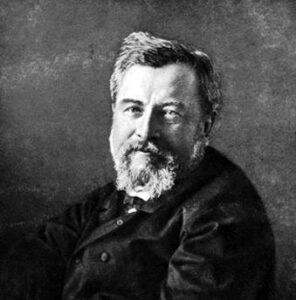Professor, lay preacher, lecturer
A former student at the Ecole Normale supérieure de la rue d’Ulm (teachers’ training college on the rue d’Ulm in Paris), a certified teacher in philosophy, he was appointed to teach philosophy at the secondary school in Montauban. A few months later he was a junior lecturer at the Faculty of theology in Paris, where he obtained tenure in 1902. His thesis dealt with the Conspiracy of the pious.
Tommy Fallot’s social and christian sermon left a mark on him. He took part in the work of the Société d’aide fraternelle et d’études sociales (society of brotherly help and social studies) he had founded. He was also one of the founders and the first president of the Fédération française des associations chrétiennes d’étudiants (French federation of the Christian associations of students) created in 1920, and developed the influence of the Association of Protestant students in Paris in the rue de Vaugirard in Paris.
Convinced of Captain Dreyfus‘s innocence, he published a clear study on Voltaire and Callas, then a series of articles in the newspaper Le Siècle (the Century). The deeply patriot reformer built beneficial contacts with the left wing members of the Ligue des droits de l’homme (Human Rights League) and with right wing members of a Comité catholique pour la défense du droit (catholic committee for the respect of rights).
During the preparation of the law separating the Church and the State, he actively campaigned in Le Siècle, and with parliamentarians for a liberal design of the new organisation, i.e. for a total separation between the Churches and the State.
As a member of the executive committee of the society of Evangelical Missions in Paris, he vigorously defended the freedom of worship that was threatened in Madagascar by the secularist politics of the General Governor, Victor Augagneur, threats mainly aimed against the Protestant missions.
The 1914-1918 war, during which he lost his eldest son in August 1914, deeply marked him, and he took part in the struggle against defeatism by being a very active lay preacher and lecturer. His eighty-one Lectures on war, delivered as a patriot and a believer, every Tuesday in the four main temples in Paris, had a great impact.
He became the dean of the Faculty of Theology in Paris in 1920 and forced through an ambitious policy to welcome foreign students and to contact central and oriental European students.
His writings
Three works of religious philosophy and sociology express his mind: La Psychologie de la conversion chez les peuples non-civilisés (The psychology of conversion in non-civilized people) in 1925, Le Non-civilisé et nous (The non-civilized and us) in 1927, Magie et religion (Magic and religion) in 1935. He thus denounced the degrading role of magic in different civilisations and in religion.

